Besides the great successes of the cultural industry in Korea, another Asian country, Thailand, has recently also had certain orientations to develop culture to maintain its influence in the world .
According to the Diplomat website, Thailand has recently been promoting its autonomy, thinking differently and doing differently to become a country with impressive cultural export values and strong influence in the world.

Members of South Korean boy band Super Junior attend a music video filming for their new mini album “One More Time” in Macau, China. Photo: Depositphotos
To achieve this goal, cultivating “soft power” will play a key role in allowing the country to skillfully navigate the flows of international diplomacy while preserving its autonomy.
When looking at the 2022 Global Soft Power Index, a startling revelation emerged: Thailand, despite being the second-largest exporter of cultural products in the Association of Southeast Asian Nations (ASEAN), did not feature in the global top 30, lagging significantly behind regional frontrunner Singapore.
This difference raises questions about Thailand’s approach to soft power and suggests some potential for enhancing the country’s soft power appeal. According to Dr. Tim Hildebrandt of the University of Duisburg-Essen, Thailand can learn valuable lessons from South Korea’s remarkable rise in the cultural industry.
Experience in developing cultural industries from Korea
Over the past few decades, South Korean pop culture has emerged as an important soft power asset. While audiences may be familiar with stars like BTS or the cinematic creations of the film “Parasite,” the rise of South Korean culture and its soft power has not been accidental. Instead, it has been underpinned by the country’s sustainable development strategies.
Dubbed the "Korean Wave" or "Hallyu," the phenomenon began in the late 1990s, when Korean television, movies and music gained popularity in other Asian countries such as China and Japan.
As pioneering companies like Samsung dramatically expanded their consumer electronics presence beyond East Asia after 2008, they spawned a wave of Korean pop culture, a wave further fueled by the spread of the internet.
YouTube - the American online video sharing platform emerged as a bridge between K-Pop and global audiences. In addition, the rise of streaming services has created a fertile ground for popularizing Korean television and movies.
For a long time, the Korean government has continuously formulated strategic policies to promote the cultural industry and globalize Korean culture, including export strategies to spread Korea's image to the world.
Unified by a common understanding of the economic growth potential of the cultural industry, successive Korean governments adjusted policies according to contemporary needs, promoting Korean economic development in the 1970s.
These efforts are managed and developed by the Ministry of Culture, Sports and Tourism of Korea through cooperation with various ministries, professional organizations, corporations and academies, contributing to enhancing Korea's cultural status on the world stage while promoting mutual growth through cross-border cultural exchange.
The government's proactive promotion of Korean culture not only strengthens the country's national image and influence but also fosters a positive global perspective on Korean identity.
In addition to promoting Korean pop culture and traditional art styles, the effort also includes initiatives such as "Kimchi Diplomacy" to promote Korean cuisine and spread Korean language learning abroad.
By strategically maintaining these aspects of its culture, South Korea has seen it as a powerful tool for shaping international perceptions and continues to use this constructive image for diplomatic purposes. In this way, South Korea’s cultural rise clearly illustrates the concept of ‘soft power’.
Thailand's approach to cultural industries
Just as South Korea has achieved some success in navigating the soft power of cultural development, Thailand has also recently exploited cultural policy to strengthen its soft power and enhance international diplomacy.
According to Dr. Tim Hildebrandt, just as South Korea has adopted “Kimchi Diplomacy,” Thailand has pioneered culinary diplomacy through its “Global Thai campaign” since 2002.
The initiative focuses on expanding the presence of Thai restaurants worldwide, not only promoting Thailand as a culinary destination but also promoting economic opportunities in the food and beverage industry.
Through the campaign, Thailand promotes strategic culture abroad, thereby enhancing soft power.
Another way to develop Thailand’s cultural industry is to generate soft power through television dramas. Thai television dramas have gained considerable traction as cultural exports and are increasingly popular in other Asian countries such as South Korea, the Philippines and Vietnam.
Furthermore, Thailand also possesses untapped potential to expand its policies focused on cultural exports, perhaps leveraging assets such as Muay Thai (Thai kickboxing) or tapping into its already strong tourism industries to project a friendly and progressive international image.
Going forward, planners will continue to take a more comprehensive and coordinated approach to cultural policy in the coming time./.
Source: https://bvhttdl.gov.vn/han-quoc-va-thai-lan-tiep-can-suc-manh-mem-phat-trien-cong-nghiep-van-hoa-202410111418458.htm























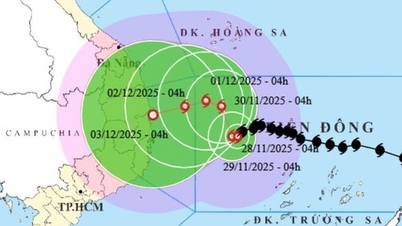


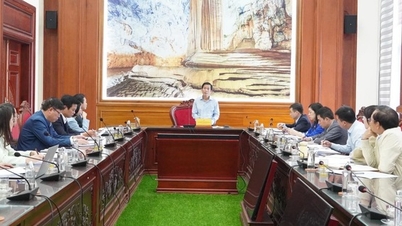


















































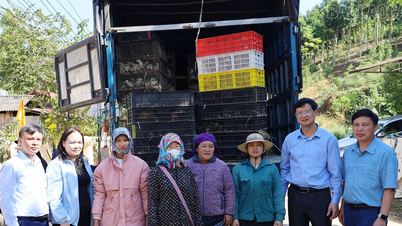


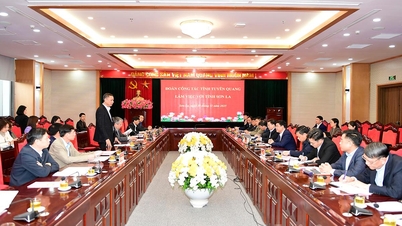

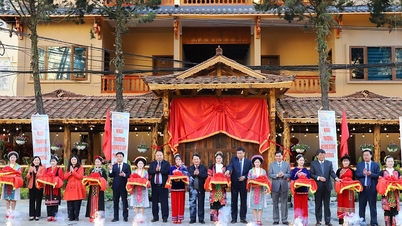













Comment (0)